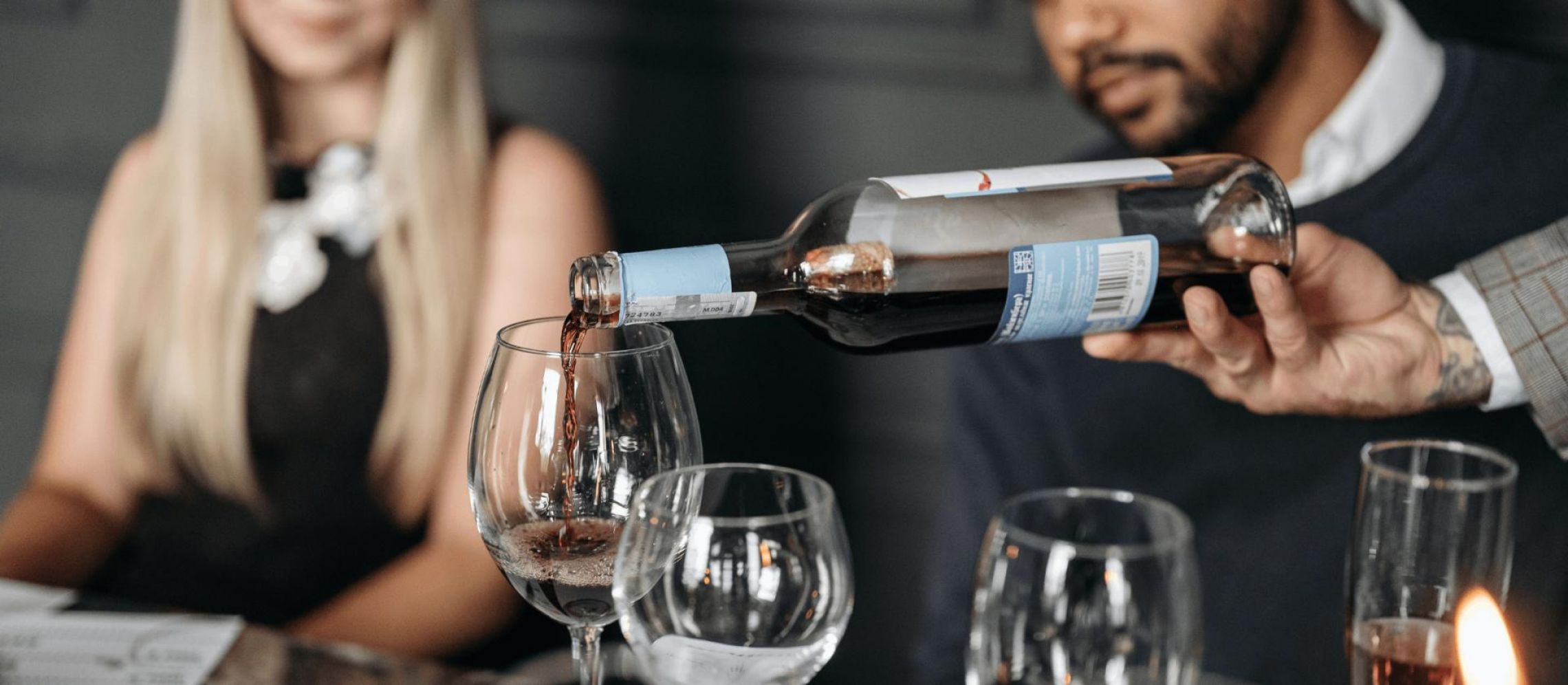Registration Deadline
28 February 2025
Judging
Date
24 & 25 March 2025
Winners Announcement
22 April 2025
28 February 2025
24 & 25 March 2025
22 April 2025

Introducing someone to the world of wine can be an exciting and rewarding experience. Whether you're a seasoned sommelier or just a wine enthusiast, helping newcomers navigate the vast landscape of wine can be a fun and educational journey. To make this process enjoyable and informative, it all starts with asking the right questions and offering the best tips.
When someone walks into your restaurant or wine bar and admits they don't know much about wine, it's a fantastic opportunity to share your passion and knowledge. You're not just a wine connoisseur; you're a wine ambassador, and your mission is to help them discover the flavors and aromas that will delight their palate.
We sought the valuable insights of industry experts to gain a deeper understanding of the market. They collaborated with us in shaping the survey questionnaire, which was used to gather their expert perspectives.
Let’s get started.

Image Source: John Sears, Lawrence Kobesky, Jeff Van Ham, Francesco Angiolini, Jon McDaniel, Toshio Ueno, Paul Solomon, John Maraffa (L-R)
Ask questions that help you gauge their flavor preferences and identify any aversions. For instance, Lawrence Kobesky mentions that they'd ask something like “What do you like to drink, but more importantly what flavors do you not find pleasant in wine?”
The reason is that if they enjoy a cup of strong black coffee, they might appreciate wines with bold flavors and tannins. On the other hand, if they dislike overly sweet beverages, you can steer clear of recommending sweet wines.
John Sears typically goes straight to the point by asking, "What kinds of wine do you usually enjoy?" This question serves a dual purpose: it offers insight into their previous wine experiences and helps gauge their familiarity with various wine styles.
On the other hand, Jon McDaniel takes a slightly unconventional approach by asking, “What's your Death Row meal?” While this question may seem a bit unusual, it can be an intriguing way to uncover their food preferences. Knowing their favorite dish can be a great starting point for wine pairing recommendations.
John Maraffa mentions that they typically start by posing straightforward questions such as “What do you like to drink, and what do you like to eat?
These two simple questions can provide significant insights into a person's taste. Their beverage preferences can often be translated into a wine style they might enjoy. If they prefer bold and smoky whiskey, they might appreciate a full-bodied red wine. If they enjoy light and refreshing cocktails, a crisp white wine or a sparkling option could be a hit.
Toshio Ueno, an International Drinks Specialist and Business Development Professional in Japanese food and alcoholic beverages, mentions that his go-to question is often, “What kind of wine have you tried and liked in the past, and what did you like about it?
This approach involves delving into their past encounters with wine to gain deeper insight into their palate. It opens the door for tailored recommendations that harmonize with their known preferences.
Jeffrey Van Ham, an experienced sommelier known for his deep wine knowledge quotes, “I always first ask what they like to drink. This does not have to be wine, I want to know their flavor profile. I will ask what wines they have tried and what they liked and disliked about them. My goal is to take them from what they know they like and do a slight side step into something new but still very similar to what they have had before. I want to find their safe space and sort just slightly out into something more adventurous.”
Francesco Angiolini says “I would like to ask if they prefer drinking still or Sparkling wines. If they like more white, rosé or red wines. And also I´d like to ask if they prefer easy-drinking wines or heavy/full-bodied wines. When you have to recommend a wine to someone that has no knowledge about it, it´s always important to use very easy terms to describe wines."
They mention it because such a question allows you to determine whether they enjoy the effervescence of sparkling wines or the stillness of traditional ones. Additionally, identifying their color preference and understanding their preference for wine body and intensity is vital for narrowing down wine options.
When you have to recommend a wine to someone with no knowledge, it's important to use straightforward terms to describe wines. Keep the language simple and relatable, avoiding technical jargon that might overwhelm a wine novice. Use terms like "fruity," "smooth," or "crisp" to describe wines.
Paul Solomon, Director of Operations at Vistro Prime Restaurant & Vie Restaurant in Chicago just goes straight to the point and inquires, “Would you like to try a sample?” He believes in always extending an invitation for a tasting. It allows the customer to get a firsthand experience of the wine you're suggesting.
Introducing someone to the world of wine is a delightful journey of exploration. By asking the right questions and considering their preferences, you can help newcomers find wines that align with their taste buds.
It's about making wine approachable, enjoyable, and tailored to their unique preferences. So, next time you encounter a wine novice, remember these questions and tips to ensure they have a delightful wine experience.
For more insights into the world of wine and the industry, you can also explore our blog post on Tips by London's 10 most renowned sommeliers on enhancing guests' experience.
[[relatedPurchasesItems-38]]
Call for domestic and international submission is now open for London Wine Competition. Enter your wines and give your brand a global boost. Register now